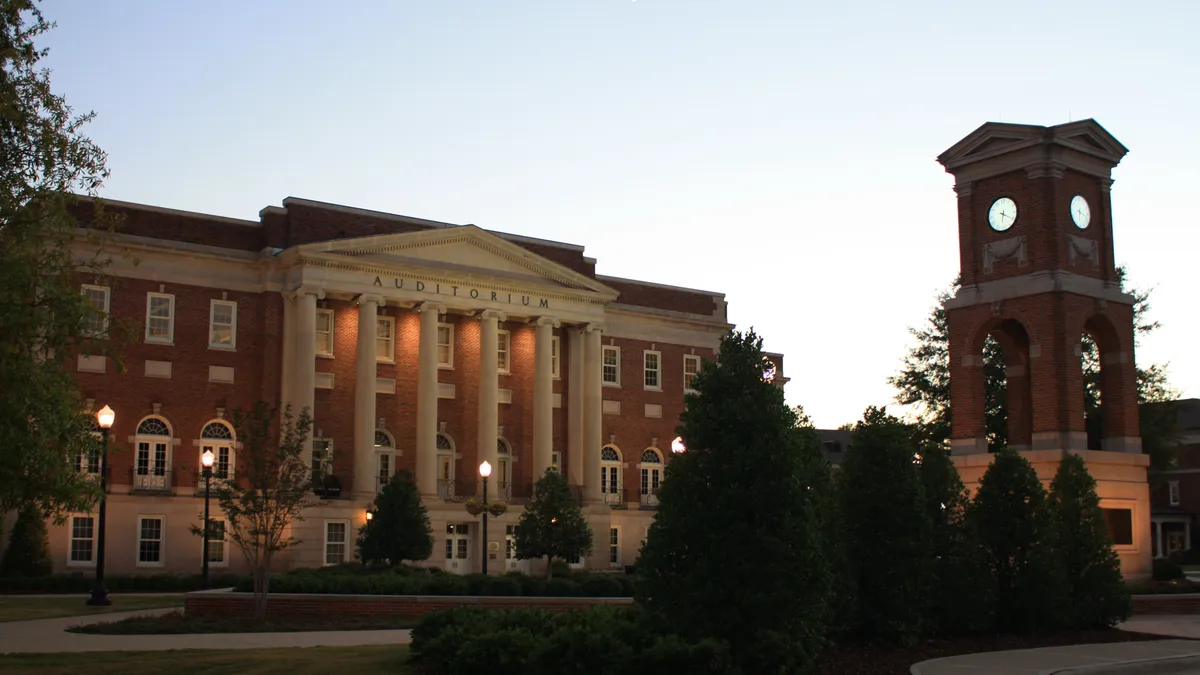Dive Brief:
- The University of Alabama is returning a $21.5 million gift from its largest donor, Hugh Culverhouse Jr., and has removed his name from its law school after he encouraged students to boycott the university over the state's new abortion law, NPR reported.
- However, the university system said in a statement Sunday that its decision to return the money was "never about the issue of abortion" but instead the donor's involvement with law school operations.
- A set of emails released Sunday by the university system indicate Culverhouse requested the return of some funds prior to his public comments about abortion based on a dispute over hiring for an endowed chair.
Dive Insight:
Last fall, Culverhouse pledged $26.5 million to the university over four years — the largest gift in the institution's history — bringing his and his wife's total support to more than $35 million. In 2017, Culverhouse endowed a chair in constitutional law for $1.5 million.
That position, based on the university's account, played a central role in the debate that resulted in its action to return the funds.
"While we are grateful to all of our donors and supporters, and very grateful to this donor and his family, donors do not dictate our administration of the University," University of Alabama System Chancellor Finis E. St. John said in a statement Friday.
Culverhouse, whose father was a Planned Parenthood officer in the 1950s, has publicly claimed the university's response stems from his views on the state's new abortion law being made known. Last month, Alabama passed a law banning abortions in nearly all cases.
In an op-ed published Friday in The Washington Post, Culverhouse called the move to return his donation "a charade," given that Alabama Gov. Kay Ivey, who signed the abortion bill, is a university trustee.
"I expected that speaking out would have consequences," he wrote, "but I never could have imagined the response from the University of Alabama, which on Friday said it would be returning my gift and removing my name from the law school."
The emails, which cover a period from May 17 to June 3, include a direct request from Culverhouse to University of Alabama President Stuart Bell for the return of $10 million.
The university said its decision to return all the funds was "a direct result" of Culverhouse's "ongoing attempts to interfere" with the law school's operations. In a statement, St. John said the donor's expectations for use of the funds “have been inconsistent with the essential values of academic integrity and independent administration of the Law School and University."
In reference to the abortion law, the university added in its statement Sunday: "The donor's continuing effort to rewrite history by injecting one of society's most emotional, divisive issues into this decision is especially distasteful."
Donor relationships have tied up other colleges. Last fall, a $50 million gift to Saint Louis University raised concern over its donor's involvement in recommending faculty and the use of research funds. George Mason University also caught flak — including litigation — for its relationship with the politically engaged Koch brothers.
Regardless, institutions are depending more on private donations as state funding fails to recover and demographic trends make enrollment projections precarious.









